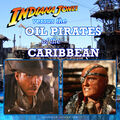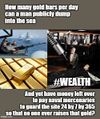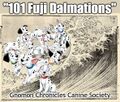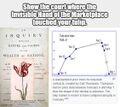Profit-Centers of the Caribbean: Difference between revisions
No edit summary |
No edit summary |
||
| Line 1: | Line 1: | ||
[[File:Profit-Centers of the Caribbean.jpg|thumb|Earliest known poster for "Profit-Centers of the Caribbean".]]'''Profit-Centers of the Caribbean''' is a series of lectures on macroeconomic theory based on [[Walt Disney (nonfiction)|Walt Disney]]'s balance sheet of the same name. | [[File:Profit-Centers of the Caribbean.jpg|thumb|Earliest known poster for "Profit-Centers of the Caribbean".]]'''Profit-Centers of the Caribbean''' is a series of lectures on macroeconomic theory based on [[:Category:Walt Disney (nonfiction)|Walt Disney]]'s balance sheet of the same name. | ||
== In the News == | == In the News == | ||
Revision as of 11:18, 23 November 2021
Profit-Centers of the Caribbean is a series of lectures on macroeconomic theory based on Walt Disney's balance sheet of the same name.
In the News
Indiana Jones Versus the Oil Pirates of the Caribbean is an action-adventure film in the Indiana Jones franchise. Dennis Hopper plays a charismatic antihero who discovers the so-called "Peak Jones" effect, when the world has more Indiana Jones films that it can sustain.
"No True Goldman", or appeal to purity, is an informal fallacy in which one attempts to protect their universal generalization from a falsifying counterexample by excluding the counterexample improperly.
101 Fuji Dalmations is a 1961 animated adventure drama film produced by Japanese ukiyo-e artist Hokusai.
Show the court where the Invisible Hand of the Marketplace touched your tulip.
Fiction cross-reference
- 101 Fuji Dalmations
- Gnomon algorithm
- Gnomon Chronicles
- No True Goldman
- Indiana Jones Versus the Oil Pirates of the Caribbean
- The Jerry Bruckheimer Enterprise
- Touched Your Tulip
- Wealth
Nonfiction cross-reference
External links
- Post @ Twitter (23 November 2021)
- Post @ Twitter (15 July 2021)
- Pirates of the Caribbean (film series) @ Wikipedia





